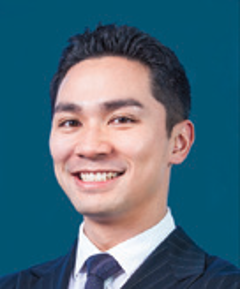Expert Insight
The Hong Kong College of Obstetricians and Gynaecologists (HKCOG) has recently updated its guidelines on the prevention and screening of cervical cancer. The latest recommendations incorporated recent evidence on the role of co-testing with human papillomavirus (HPV)-based screening and cytology-based screening. In an interview with Omnihealth Practice, Dr. Wong, Ching-Yin Grace shared the rationale behind co-testing as the preferred testing modality in The Family Planning Association of Hong Kong as it offers concurrent triaging. The combination of sensitivity with HPV tests and the specificity with cytology tests allows for a more lenient screening schedule for women in Hong Kong without compromising the benefit of cervical cancer detection.
Hereditary angioedema (HAE) is a rare, yet potentially life-threatening, inheritable disease characterized by episodic attacks of cutaneous and submucosal swelling. Unfortunately, the adoption and implementation of international guidelines established in Asia-Pacific (AP) populations remains limited due to a lack of expertise, infrastructure, public awareness, and access. In an interview with Omnihealth Practice, Professor Philip Li, Board Director of the Asia Pacific Association of Allergy, Asthma and Clinical Immunology (APAAACI) and lead author of a recently published epidemiologic study of HAE in the AP region, outlined the regional epidemiologic characteristics of HAE, current challenges and priority areas that require attention to optimize HAE management in the AP region. He also shared insights regarding the most recent Hong Kong-Macau Severe Hives and Angioedema Referral Pathway (SHARP) which offers guidance on patient stratification and referral strategies in patients with urticaria.
Type 2 diabetes (T2D) is a chronic disorder that can lead to a high disease burden and repeated hospital admissions due to its ability to facilitate a multitude of subsequent morbidities.1 Conventional studies often focus on investigating the risk of time-to-first events in T2D patients, giving limi
According to the American Diabetes Association (ADA)/ European Association for the Study of Diabetes (EASD) guideline, a patient-centered approach to type 2 diabetes (T2D) management should be adopted with the goal of not only preventing complications but also optimizing patients’ quality of life.1 To achieve these goals, factors that affect health-related quality of life (HRQoL) such as social determinants of health, psychosocial well-being, and health behaviors are key considerations in glycemic management strategies for patients with T2D.1 At the EASD Annual Meeting 2023, Professor Chan, Chung-Ngor Juliana from the Department of Medicine and Therapeutics, The Chinese University of Hong Kong presented the results of a cross-sectional analysis of HRQoL in patients with T2D treated with oral glucose-lowering drugs (OGLDs) who were enrolled in the Joint Asia Diabetes Evaluation (JADE) Register. In a subsequent interview with Omnihealth Practice, Prof. Chan shared further insights on the application of the JADE® Program, shedding light on the dynamics between glycemic management strategies and patients’ HRQoL.
Multisystem inflammatory syndrome in children (MIS-C) is a novel post-infectious inflammatory condition associated with Coronavirus disease 2019 (COVID-19), characterized by prolonged fever, gastrointestinal (GI) symptoms and rash. To some extent, the disease resembles Kawasaki disease (KD), toxic shock syndrome (TSS), and hemophagocytic lymphohistiocytosis (HLH), increasing the difficulty in differential diagnosis in clinical practice. In an interview with Omnihealth Practice, Dr. Cheung, Wai-Yin Eddie discussed the challenge of evaluating suspected MIS-C cases in real-life scenarios and emphasized the importance of timely intervention among children who were infected with or recently recovered from COVID-19. He also shared a clinical case of a 7-year-old girl with MIS-C who presented with early MIS-C symptoms and was managed with immunomodulatory treatment, swiftly achieving favorable outcomes.
In recent years, leadless pacemaker has been introduced into clinical practice to overcome the lead- and pocket-related complications associated with conventional pacemakers, including infections and lead failure.
In 2016, a young woman in her 20s complained of sudden abdominal pain in the morning which then deteriorated rapidly, and was subsequently admitted to the intensive care unit (ICU) of Prince of Wales Hospital (PWH). The patient was diagnosed with Crohn’s disease (CD). During her ICU stay, the patient underwent 2 major surgical procedures and received massive blood transfusion due to her severe intestinal bleeding. The patient had been staying in the ICU for 3 months and was discharged from PWH only about 3 years later. This case reminds us of the considerable suffering of the CD patients and the immense challenges of overall disease management. Considering its rising prevalence in Hong Kong, CD is set to increase the medical needs of patients and the disease burden of the society. In an interview with Omnihealth Practice, Dr. Lam, Long-Yan Kelvin talked about the latest advances in CD management and the ongoing difficulties in local clinical practice.
With the median age of women having their first child in Hong Kong (HK) rising from 28.1 years in 1991 to 32.3 years in 2020, the rates of comorbidities and obstetric complications are expected to increase. Thus, notably, there is an increasing need for maternal critical care, resulting in the first HK maternal special care (MSC) unit being piloted in the Prince of Wales Hospital in May 2018 which aims to reduce maternal morbidity and mortality. In an interview with Omnihealth Practice, Dr. Hui, Shuk-Yi Annie talked about her experience in founding the first MSC unit in HK and shared a clinical case of preeclampsia with postpartum hemorrhage which benefited from the MSC unit and resolved without developing complications
Spontaneous pneumothorax (SP) is defined as the existence of air in the pleural space without a precipitating external event. It can be further classified into either primary or secondary based on the presence or absence of pre-existing lung diseases. SP accounts for at least 1,000 hospital admissions per year in Hong Kong. Many patients with SP present to the emergency departments. Traditionally, considerations for intervention rest primarily on the size of pneumothorax and presence of dyspnea. There has been hardly any high-powered clinical studies on SP as the recruitment processes are remarkably difficult, given the emergency nature and acute presentation of many SP. Recently, the results of several practice-changing clinical trials on SP have been published, including new data on the ambulatory devices supporting its selective utilization in clinical practice. In an interview with Omnihealth Practice, Dr. Lui, Mei-Sze Macy presented some new data on the management of SP including the use of ambulatory devices and shared a case of secondary SP which resolved well without any complications after using one of such devices.
Despite the increased awareness of schizophrenia in Hong Kong, there remains considerable stigma attached with the illness that prevents patients from receiving the appropriate treatment. A paradigm shift of the healthcare system with telemedicine is the next step to optimizing the management of schizophrenia in the post coronavirus disease 2019 (COVID-19) era. The United States (US) has taken initiatives to adopt artificial intelligence (AI) technologies in terms of telemedicine, treatment delivery, and treatment monitoring. As the technologies become mature, the issues of ethics and privacy must also be addressed. In a recent interview with Omnihealth Practice, Dr. Keith Hariman shared his views on the application of such technologies in the management of schizophrenia in Hong Kong.
Trending Posts

























